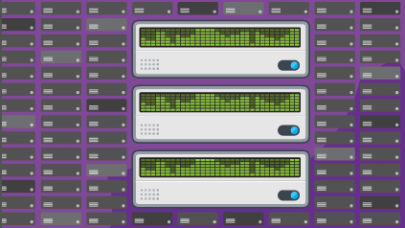
Windows Azure Continues ‘Big Compute’ Rollout
February 3, 2014
Microsoft is boosting the high-performance computing (HPC) capabilities of its Windows Azure cloud, in keeping with the Big Compute strategy it first revealed Read more…

Windows Azure Ready to Take on AWS
April 17, 2013
After a lengthy incubation phase, Microsoft is finally ready to release its IaaS product into the wild. AWS, look out. Read more…

Grid Software Creates Virtual Windows Supercomputer
November 20, 2012
What if you could combine the benefits of virtualization, grid and cloud computing to accelerate Windows-based applications? An Israeli company, Xoreax, is doing just that. We spoke with Xoreax at SC12 in Salt Lake City, Utah, last week to learn more about their offering. Read more…

Microsoft Outfits Azure Cloud for Big Compute
November 13, 2012
Microsoft has unveiled a set of "big compute" capabilities for its Windows Azure offering. The company is courting the HPC space with more powerful hardware, new instance configurations, and the updated Microsoft HPC Pack 2012. Read more…

Mastering Windows Azure Application Development
January 10, 2012
In the years to come, cloud computing will take a substantial piece of the market from traditional deployment models. This implies growing demand for applications that can operate in a cloud environment, and for software engineers skilled in cloud computing technologies. Mastering application development for Windows Azure is a most valuable investment for a .NET programmer. Read more…

Microsoft Opens Windows Azure Cloud to Linux
January 9, 2012
If the rumors are true, soon Azure customers will be able to create virtual Linux servers without losing data. Read more…

Microsoft Aims for Client-Cluster-Cloud Unification in Technical Computing
September 27, 2010
Last week's High Performance Computing Financial Markets conference in New York gave Microsoft an opening to announce the official release of Windows HPC Server 2008 R2, the software giant's third generation HPC server platform. It also provided Microsoft a venue to spell out its technical computing strategy in more detail, a process the company began in May. Read more…

Opening Windows to the Rackspace Cloud
August 12, 2010
This morning cloud services vendor Rackpace announced that it was opening cloud servers for Microsoft Windows, with distinct focus on system administrators and .NET developers. With a cloud currently dominated by Linux, one has to wonder how this might eventually shape the cloud server landscape. Read more…

- Click Here for More Headlines

Whitepaper
Transforming Industrial and Automotive Manufacturing
In this era, expansion in digital infrastructure capacity is inevitable. Parallel to this, climate change consciousness is also rising, making sustainability a mandatory part of the organization’s functioning. As computing workloads such as AI and HPC continue to surge, so does the energy consumption, posing environmental woes. IT departments within organizations have a crucial role in combating this challenge. They can significantly drive sustainable practices by influencing newer technologies and process adoption that aid in mitigating the effects of climate change.
While buying more sustainable IT solutions is an option, partnering with IT solutions providers, such and Lenovo and Intel, who are committed to sustainability and aiding customers in executing sustainability strategies is likely to be more impactful.
Learn how Lenovo and Intel, through their partnership, are strongly positioned to address this need with their innovations driving energy efficiency and environmental stewardship.
Download Now
Sponsored by Lenovo
Whitepaper
How Direct Liquid Cooling Improves Data Center Energy Efficiency
Data centers are experiencing increasing power consumption, space constraints and cooling demands due to the unprecedented computing power required by today’s chips and servers. HVAC cooling systems consume approximately 40% of a data center’s electricity. These systems traditionally use air conditioning, air handling and fans to cool the data center facility and IT equipment, ultimately resulting in high energy consumption and high carbon emissions. Data centers are moving to direct liquid cooled (DLC) systems to improve cooling efficiency thus lowering their PUE, operating expenses (OPEX) and carbon footprint.
This paper describes how CoolIT Systems (CoolIT) meets the need for improved energy efficiency in data centers and includes case studies that show how CoolIT’s DLC solutions improve energy efficiency, increase rack density, lower OPEX, and enable sustainability programs. CoolIT is the global market and innovation leader in scalable DLC solutions for the world’s most demanding computing environments. CoolIT’s end-to-end solutions meet the rising demand in cooling and the rising demand for energy efficiency.
Download Now
Sponsored by CoolIT
Advanced Scale Career Development & Workforce Enhancement Center
Featured Advanced Scale Jobs:
HPCwire Resource Library
HPCwire Product Showcase
© 2024 HPCwire. All Rights Reserved. A Tabor Communications Publication
HPCwire is a registered trademark of Tabor Communications, Inc. Use of this site is governed by our Terms of Use and Privacy Policy.
Reproduction in whole or in part in any form or medium without express written permission of Tabor Communications, Inc. is prohibited.
























